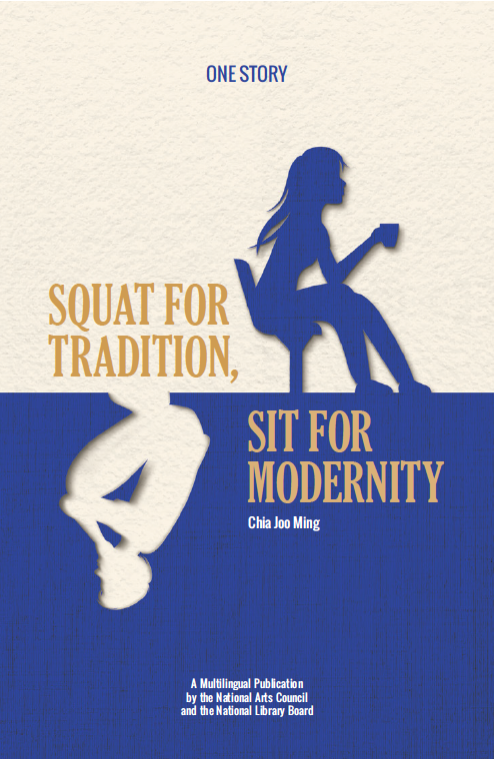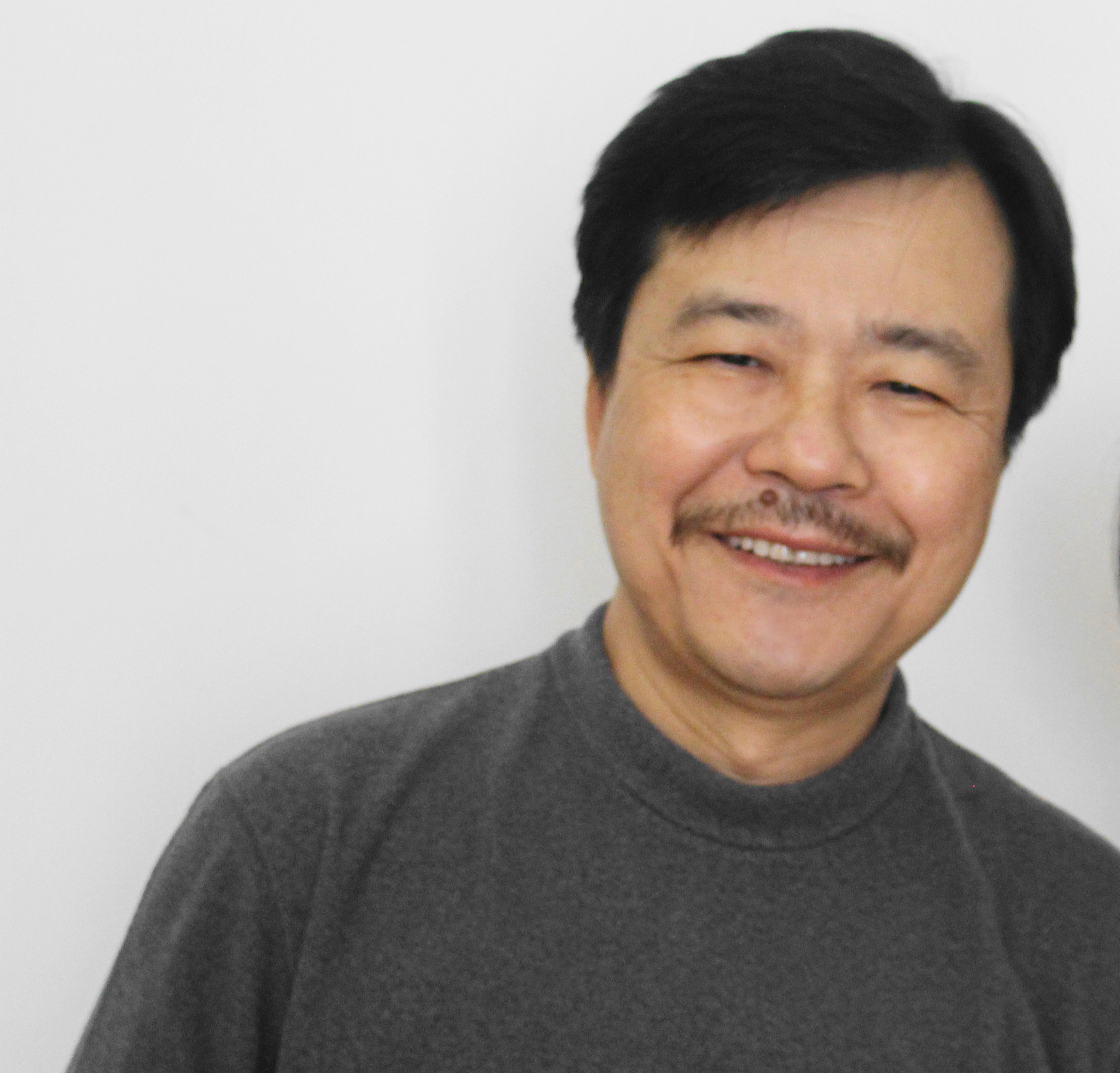One Story: Squat for Tradition, Sit for Modernity

About the One Story project
One Story is a National Reading Movement initiative to make Singapore short stories - originally written in Tamil, Malay and Chinese - available in the other languages. The project aims to bring these stories to more readers beyond the language communities that they were originally written for. “Squat for Tradition, Sit for Modernity” is a short story by Cultural Medallion recipient Chia Joo Ming that was originally written in Chinese. This book features the story in all four languages.
Story Synopsis
When the story’s characters attempt to replace their squatting toilet with a sitting toilet bowl, they discover this will not be possible because their pre-war house is in a heritage conservation district and even its toilets are protected by regulations.
Cultural Medallion recipient Chia Joo Ming embeds this thwarted renovation attempt in a light-hearted story that ultimately poses the question to readers: “What do home, tradition and natural instinct mean to each of us?”
Squat for Tradition, Sit for Modernity

1.
I’ve often wondered how to describe a home.
First, what is a home?
A television set (including a VCR and disc player), a telephone (including a fax machine), a hi-fi system (including a radio cassette recorder, a CD player), a computer, an air conditioner, a washing machine, an electric iron, a cooker hood, a refrigerator, an electric stove (that bakes, roasts, pan-fries, deep-fries), a microwave oven, an electric kettle, a hair dryer, a vacuum cleaner, and of course, electric lights (including standing and wall lamps). Do these, together, make up a ‘90s-era home?
What exactly is a home?
It is Christmas Eve, and the fine drizzle outside has made its way through the gauze curtains, speckling the air like dust before descending onto the newly waxed floorboards. My first reaction is to wonder why I hadn’t noticed this earlier, after which it occurs to me that I’ll need to mop the floors again tomorrow. My first reaction should have been to get up to stand at the window, to feel the evening spray on my face, my hair, on this tranquil Christmas Eve, as the Female Lead makes her entrance…
But she doesn’t enter. She has just fallen asleep in the bedroom. Prior to that, she handed me a list of the basic appliances that make up a home. Only five items have checkmarks next to them.
I ought to get up to walk to the windows to shut them, not to stand there transfixed, lost in thought. The rain grows heavier. I’ve begun to find the regularity of these showers intolerable, even though I had, in the past, spent countless rainy days in front of the windows with her.
I get up, and the only thing left in the living room is a six-foot-tall (I never could convert that into the darned metric system) plastic Christmas tree, one of the emotional ties that binds her and me. A Christmas tree in our house, festooned with lights like a starry night, creates a festive atmosphere in our home. The other furniture can wait.
As my breathing echoes in the bare, square hall with teak flooring, the question returns: What makes a home? As my breathing echoes in the bare, square hall with teak flooring, the question returns: What makes a home? The other day, I said to her that people in the past had to have livestock to set up a home. That is why the Chinese character for “home” (jia, 家) positions the character for “pig” (豕) under a “roof” ( 宀 ). But in today’s homes, the component for “pig” can probably be replaced by the character for “electricity” (电):

Read the rest of the story in ENGLISH
Alternatively, borrow the book HERE.
About the Author

Born in Singapore in 1959, Chia Joo Ming was presented with the Young Artist Award for Literature by the National Arts Council of Singapore in 1993. He was subsequently invited to participate in the Iowa International Writing Program in 1995. In 2014, he was appointed as Writer-in-Residence at Nanyang Technological University. He was conferred the S.E.A Write Award in 2017 and the Cultural Medallion in 2021.
He has been described as “one of the ten keywords of Singapore’s Chinese cultural perspectives” by Professor David Der-Wei Wang, Department of East Asian Languages and Civilizations, Harvard University.
Chia has 11 published books. He won the Singapore Book Award in 1996 for New Words of Worldly Tales. He also won the Singapore Literature Prize in 2006, 2010 and 2020 for Reconstructing Nanyang, m40 and Kian Kok respectively. His novel, Exile or Pursuit received a commendation award at Singapore Literature Prize in 2016.
In 2016, Taiwan’s literary magazine (Wen Hsun) put m40 on its list of top 20 novels (2001-15) while Kian Kok was on Yazhou Zhoukan’s list of 2018’s top 10 novels. Exile or Pursuit was selected as a Chinese literature textbook for secondary schools by Ministry of Education in 2018. An English translation of the novel was published in 2019, and the novel was adapted into a Chinese stage performance in 2021.
Updated 25 Feb 2023

